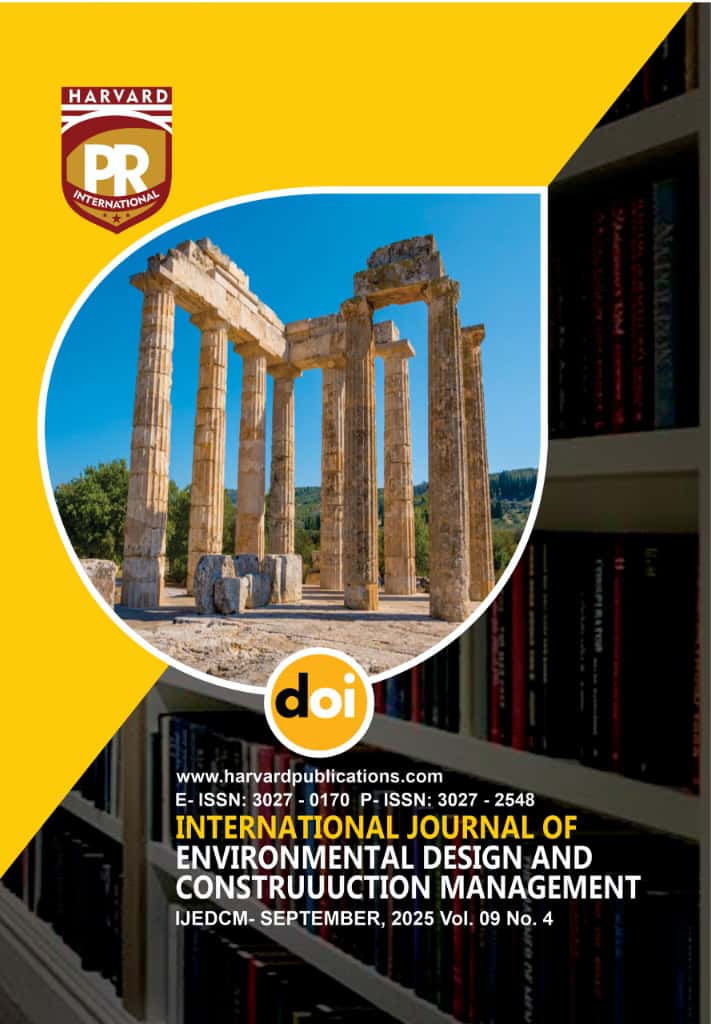Abstract
Green building practices are increasingly recognized as essential strategies for achieving sustainable urban development, particularly in Nigeria where rapid urbanization continues to exert pressure on land resources and governance systems. Hence, this study investigated green building practices and sustainable land use planning for resilient urban development within the context of Nasarawa, Nigeria by assessing the level of awareness and adoption of green building practices; how land-use patterns influence adoption of green building practices; contributions of green principles to sustainable land uses and the barriers that constrain adoption of green building practices and sustainable land use planning. Using a structured questionnaire administered to 256 respondents, data were analyzed through weighted mean scores (WMS), standard deviations, and rankings on a five-point Likert scale. The findings show that compact development and reduction of urban sprawl were considered the most significant outcomes of green building. Major barriers identified include high initial material costs, lack of government incentives, and weak enforcement of planning policies. Overall, the study highlighted both the potential of green building to advance sustainable land use and the institutional and financial challenges limiting its adoption. Hence, the study recommended policy strengthening, provision of financial incentives, and technical capacity development to align urban planning with sustainability goals in Nigeria.

This work is licensed under a Creative Commons Attribution 4.0 International License.
Copyright (c) 2025 AYODELE, KAYODE DAVID, AJANI, USMAN YUSUF, OJENIYI MOSES ADEOLU, ADEOSUN ABDUL OLANREWAJU, BABATUNDE FOLARIN ABIODUN, FASINA WOLE KAZEEM (Author)




